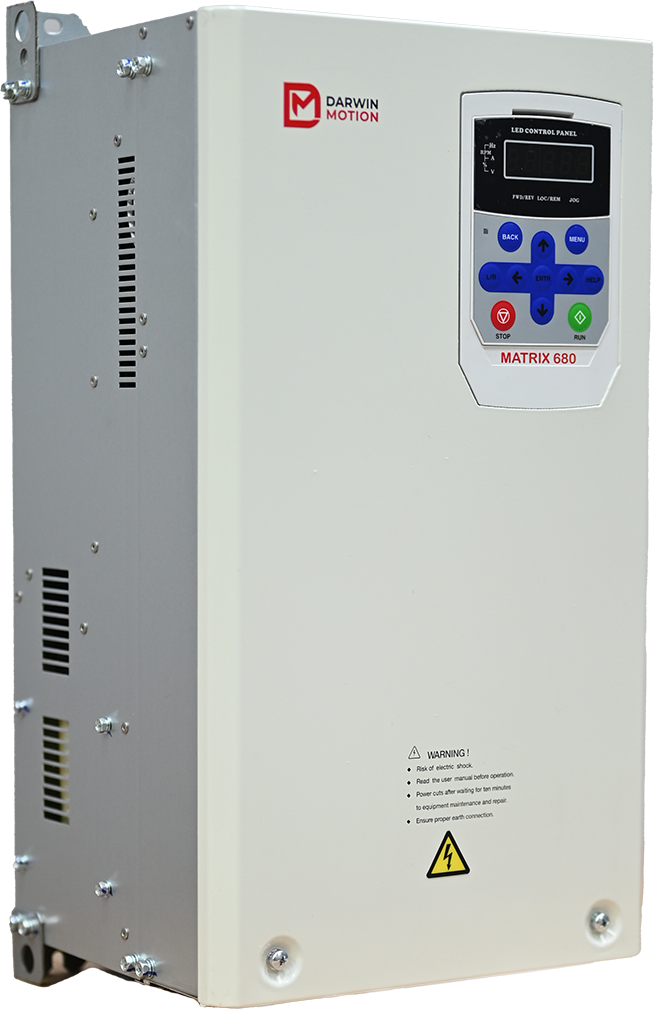Posted on 24th May 2024

In the highly regulated and precision-driven pharmaceutical industry, maintaining accuracy and consistency in production processes is paramount. One technology that has become indispensable in achieving these goals is the Variable Frequency Drive (VFD). VFDs offer numerous benefits that enhance the efficiency, reliability, and safety of pharmaceutical manufacturing processes. This article explores the critical role VFD drives play in the medicine industry.
A Variable Frequency Drive (VFD) is an electronic device that controls the speed and torque of electric motors by varying the frequency and voltage of the power supplied to them. This precise control allows for significant improvements in process efficiency and product quality.
Enhanced Process Control
VFDs provide precise control over motor speed and torque, which is crucial in pharmaceutical manufacturing where even minor deviations can affect product quality. For example, in mixing and blending operations, Ac drive ensure that ingredients are combined at optimal speeds, resulting in consistent and high-quality products.
Energy Efficiency
Energy consumption is a major concern in pharmaceutical plants due to the extensive use of motor-driven systems. VFDs contribute to significant energy savings by matching motor speed to the actual demand, reducing unnecessary power usage. This not only lowers operational costs but also supports environmental sustainability initiatives.
Reduced Mechanical Stress
Traditional motor systems operate at a constant speed, leading to mechanical stress and wear over time. VFD drives mitigate this by enabling soft starts and stops, which reduce the mechanical impact on equipment. This prolongs the lifespan of machinery and minimizes maintenance costs.
The pharmaceutical industry is governed by strict regulatory standards to ensure product safety and efficacy. VFDs help maintain compliance by offering precise control and monitoring capabilities, which are essential for adhering to Good Manufacturing Practices (GMP) and other regulatory requirements.
Scalability and Flexibility
Pharmaceutical production often requires the ability to scale operations up or down based on demand. VFDs provide the flexibility to adjust motor speeds easily, allowing for seamless scalability without significant changes to existing infrastructure. This adaptability is particularly beneficial in pilot plants and research facilities where processes are frequently modified.
Improved Safety
Safety is a critical concern in pharmaceutical manufacturing. VFDs contribute to a safer working environment by providing features such as motor overload protection, which prevents overheating and potential failures. Additionally, the precise control offered by VFDs can help avoid hazardous situations caused by mechanical malfunctions.
Mixing and Blending
VFDs are widely used in mixers and blenders to ensure that ingredients are combined at the right speed and consistency, which is crucial for producing uniform pharmaceutical products.
HVAC Systems
Controlling the environment within pharmaceutical facilities is essential for maintaining product integrity. VFDs optimize the operation of HVAC systems, ensuring that temperature and humidity levels are kept within specified ranges while minimizing energy consumption.
Centrifuges
In processes such as filtration and separation, VFDs control centrifuge speeds, enhancing the efficiency and effectiveness of these operations.
Pumps and Compressors
VFDs are used to regulate the speed of pumps and compressors, which are integral to various stages of pharmaceutical manufacturing, from raw material handling to final product packaging.
The implementation of Darwin Motion VFD drives in the pharmaceutical industry represents a significant advancement in achieving precision, efficiency, and compliance in manufacturing processes. By providing enhanced control over motor operations, VFDs contribute to improved product quality, reduced operational costs, and increased equipment longevity. As the pharmaceutical industry continues to evolve, the adoption of VFD technology will remain a key factor in meeting the demands of modern medicine production while adhering to stringent regulatory standards.